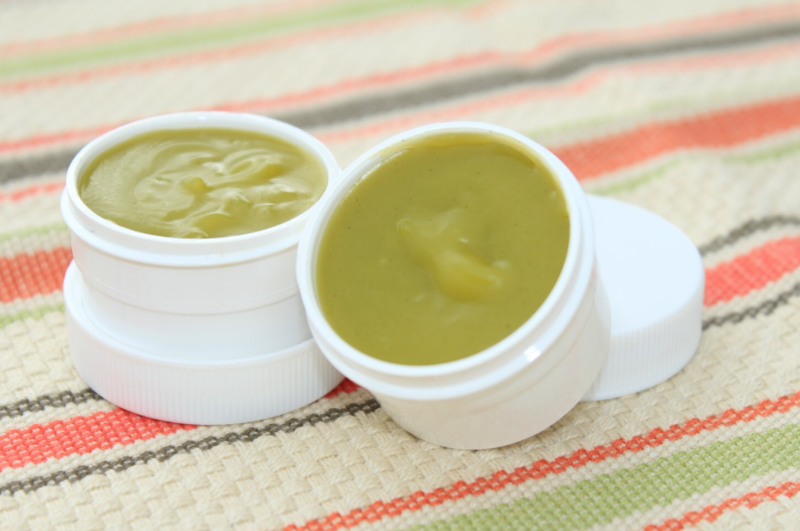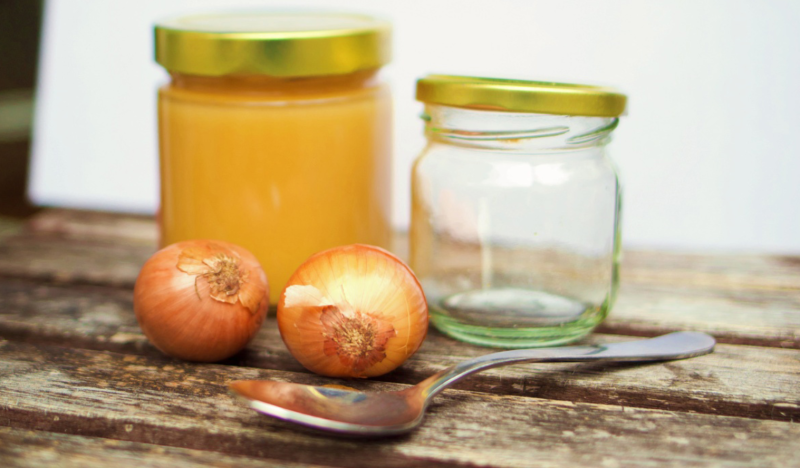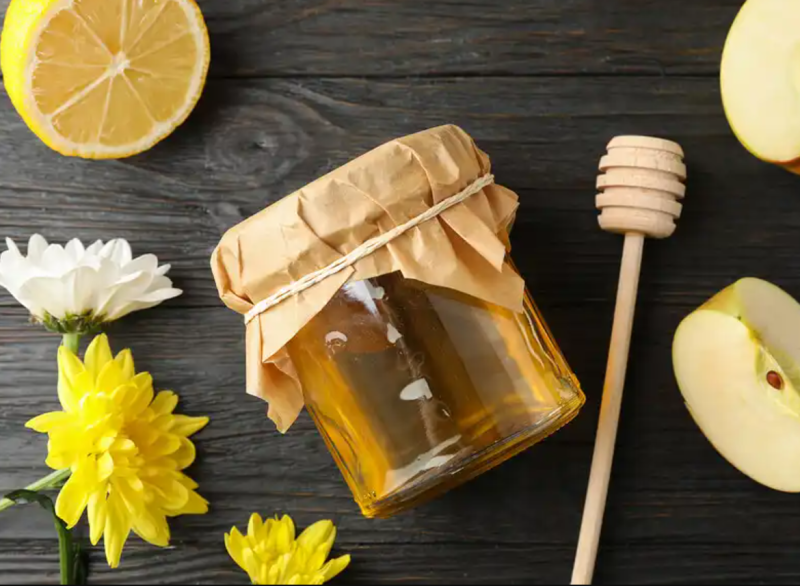
Calming the cough is urgent when we have congestion and other discomforts. For this reason, we try to find relief in different ways; one is by preparing homemade expectorants with commonly used natural ingredients, such as honey, onion, and garlic.
These three ingredients are straightforward to obtain, but the flavor is pleasant when combined in the same recipe. Also, honey makes the texture smooth and soothing for an irritated throat. Next, we tell you how to prepare them. Take note!
Contents
What are expectorants?
According to a publication in Offarm Magazine, expectorant medications are those whose properties help to promote the expulsion of bronchial secretions that remain accumulated in the respiratory tract.
They are usually found in syrups and are used to soothe coughs, colds, and other bronchial and pulmonary conditions. Its main objective is to increase the aqueous secretions of the submucosal and salivary glands, which are relevant in eliminating excess mucus.
Nine expectorant syrups to soothe coughs naturally
One of the most common and effective ways to relieve discomfort caused by coughing is the use of expectorants. Although the options on the market are abundant, the composition of some ingredients of natural origin offers similar effects and a particular sensation of relief.
However, it must be taken into account that the idea of using these remedies is not to replace the treatment prescribed by the doctor but to consume them as a complement—of course, always maintain good lifestyle habits. With this in mind, we show you the seven recommended recipes in the popular sphere.
1. Expectorant syrup with honey and cayenne pepper
One of the main components of cayenne pepper and hot peppers is capsaicin, a substance characterized by a burning sensation in the mouth. According to a clinical trial published in Respiratory Medicine, capsaicin might improve non-allergic rhinitis and decrease cough symptoms.
On the other hand, honey, according to the Mayo Clinic, would also have properties to alleviate coughing. It is suggested that it may be as effective as dextromethorphan, a common ingredient in inhibiting this condition. Since these two ingredients are inexpensive and readily available, their effects are worth checking out.
Ingredients
- The juice of 1 lemon.
- ¼ cup of apple cider vinegar (62 ml).
- Three tablespoons of natural bee honey (75 g).
- One teaspoon of ginger powder (5 g).
- ½ teaspoon of cayenne pepper (2 g).
Preparation
- Add the apple cider vinegar to a pot and immediately mix it with lemon, honey, and ginger juice.
- Next, stir everything with a wooden utensil and let it heat up over low heat.
- Add the cayenne pepper and, before it boils, remove it.
- Once it reaches a moderate temperature, pack it in a previously sterilized glass jar.
- Add it to a glass of hot water to facilitate intake.
2. Eucalyptus vapors

This is perhaps one of the most popular remedies for treating symptoms of the flu or the common cold. As an article published in BioMed Central indicates, the main component of eucalyptus is cineole, which could effectively treat respiratory diseases, such as rhinosinusitis or asthma.
Ingredients
- 2 liters of water.
- Ten eucalyptus leaves (optional).
Preparation
- Add the eucalyptus leaves in a pot with water and boil over low heat for five minutes.
- When it is ready, cover your head with a towel, stand at a safe distance from the container (so as not to burn yourself), and inhale the vapors that result from the decoction.
- Try to do it at night, just before going to sleep.
3. Expectorant syrup with honey and onion

This remedy takes a bit longer but is worth a try. Combining onion with honey allows us to obtain a good-tasting homemade syrup capable of relieving coughs and providing some relief.
Honey has been used since ancient times to treat coughs. A literature review published in The Cochrane Database of Systematic Reviews states that this product effectively reduces cough frequency compared to a placebo. Its effectiveness is usually similar or superior to some drugs, such as dextromethorphan and diphenhydramine.
Ingredients
- 1 ½ cups of onion (300 g).
- ½ cup of honey (150 g).
- One glass of white wine (200 ml).
Instructions
- The first thing you should do is cut the onion into small pieces.
- Mix it in a glass jar with honey and white wine when it’s ready.
- Let it macerate for two days.
- Once this time has passed, you can start consuming the resulting syrup.
4. Thyme
A little thyme with honey and lemon gives us a tea suitable for relieving coughs, sore throats, and excess mucus production. Thyme is a plant that has high concentrations of a substance called thymol. According to multiple investigations, this substance gives it spasmolytic and anti-inflammatory properties, which can help relieve coughing,
Ingredients
- The juice of ½ lemon.
- One cup of water (250 ml).
- One teaspoon of thyme (5 g).
- Four teaspoons of honey (25 g).
Preparation
- To start, bring the cup of water to a boil.
- When it comes to a boil, add the thyme and the tablespoon of honey.
- Later, let it rest for 5 minutes, and add the juice of half a lemon.
5. Apple, honey, and lemon preparation
 A paste prepared with apple pulp, honey, and lemon is an expectorant solution to soothe a cough. It is believed that this mixture has an anti-inflammatory and mucolytic effect; that is, it stimulates the elimination of secretions and helps to clear the airways.
A paste prepared with apple pulp, honey, and lemon is an expectorant solution to soothe a cough. It is believed that this mixture has an anti-inflammatory and mucolytic effect; that is, it stimulates the elimination of secretions and helps to clear the airways.
Ingredients
- ½ ripe apple.
- The juice of ½ lemon.
- Four teaspoons of honey (25 g).
Preparation
- First, cook the apple and mash it into a puree.
- Mix it with the lemon juice and honey.
- Consume one tablespoon a day.
Note: All these remedies should be consumed in moderation as they are high in sugar.
6. Ginger
Ginger is a spice with multiple beneficial health properties and has been used to treat fever, asthma, and cough for many years. According to a study in the Phytotherapy Research Journal, the ginger infusion has antitussive properties, although the active principle responsible for this effect has not yet been identified.
Ingredients
- 1 cm of ginger.
- 150 ml of water.
- Juice of ½ lemon.
- One teaspoon of honey.
Preparation
- Bring the water to a boil.
- Wash, peel, and chop the ginger into small pieces.
- Add the ginger to the boiling water, remove from the heat, and let stand for 10 minutes.
- Strain the mixture and add the lemon juice and honey.
- Take this tea every night before bed.
7. Marshmallow root
Another helpful homemade expectorant to soothe a cough involves using marshmallow root. This plant has been used to treat dry cough or phlegm for many generations.
A Complementary Medicine, Research magazine study showed that this plant extract helps treat dry cough. In addition, its combination with other ingredients, such as ginger or ivy, provides effective relief against coughing up phlegm.
Ingredients
- One tablespoon of marshmallow root.
- One glass of water.
Preparation
- Place the water and the marshmallow root on the heat for 10 minutes.
- Remove from heat and let rest for 5 minutes.
- Strain the mixture and drink it at least two times a day.
- You can add a teaspoon of honey to improve the flavor.
8. Anise syrup
Green anise or Pimpinella anisum L is a herb widely used as an expectorant in treating cough with phlegm. Studies affirm that green anise extract is helpful in respiratory tract disorders. In addition, it has healing properties in relieving stomach pain, indigestion, and bloating of the abdomen.
Ingredients
- 500 ml of water.
- 250 to 300 ml of honey.
- One tablespoon of green anise seeds.
- One tablespoon of thyme.
- One tablespoon of licorice root.
Preparation
- Add the water, anise, and licorice to a pot, letting it boil for 15 to 20 minutes.
- Remove from the heat and add the dried thyme.
- Cover and let stand for 10 to 20 minutes until cool.
- Strain the preparation, add the honey, and stir.
- Bring the mixture to medium-low heat, and mix until obtaining a homogeneous preparation.
- Store in a glass container in the fridge and consume 2 to 3 times daily.
9. Preparation of watercress and honey
Watercress syrup is a natural mixture that relieves coughs, flu, and colds. According to studies, this is thanks to the antioxidant, anti-inflammatory, antiviral, and expectorant properties of the Nasturtium officinale plant.
Ingredients
- One tablespoon of water.
- Three spoonfuls of sugar.
- 1/2 glass of watercress juice.
Preparation
- Add the water and sugar to a pot, and put on low heat for a few minutes.
- When boiling, add the watercress juice and mix well.
- Let infuse for 2 to 4 minutes and remove from heat.
- Use 2 to 4 tablespoons a day to relieve phlegm and throat discomfort.
Other tricks to calm a cough and eliminate phlegm
Maintaining adequate hydration is one of the most effective measures to clear airway secretions. Drinking plenty of water throughout the day will make the mucus more fluid, facilitating its expulsion from the bronchial tree.
In addition, humidifiers can also be beneficial since it hydrates the upper respiratory tract. Other recommendations that can be followed to alleviate these symptoms are the following:
- Take hot showers or breathe in the steam.
- Gargle with salt water to relieve throat discomfort.
- Eat foods with bromelain, such as pineapple, for its mucolytic properties.
- Consume vitamin C to strengthen the immune system.
- Avoid foods that cause acid reflux.
- Take probiotics and acetylcysteine supplements.
Tips to prevent cough and cold
The cold, flu, and cough are common conditions in cold weather. In general, several recommendations help reduce the risk of suffering from these diseases, such as the following:
- Limit contact with sick people.
- Wash your hands regularly with plenty of soap and water.
- Use alcohol or disinfectant gel to clean hands outside the home.
- Disinfect and clean the rooms of the house regularly.
- Consume plenty of fluids during the day.
- Sleep between 7 and 9 hours a day.
- Avoid stressful situations that depress the immune system.
- Consume citrus foods rich in vitamin C and Zinc.
In the same way, it is vital to see a specialist if you suspect flu or congestion. Sometimes cold symptoms can be confused with allergies.
Home remedies: supplements for flu days
It is worth mentioning that none of these expectorants, by themselves, will cure a cold, catarrh, or flu. However, to obtain some relief, they can be used (in moderation and after consulting your doctor) to complement the prescribed drug treatment.
These, by moisturizing the throat area, help to calm the cough. If the discomfort persists or intensifies, consult your doctor immediately so that he can check you up and tell you what other treatment you should follow.